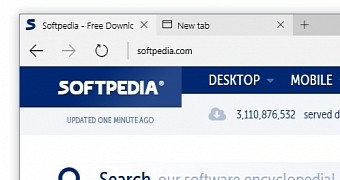Microsoft has just announced plans to support Google's VP9 video codec with future versions of its Edge Web browser.
VP9 is a modern, royalty-free video codec developed by Google, which was created for its WebM file format, designed specifically for usage with the HTML5 video tag.
VP9 evolved from the problematic VP8 video codec, and is highly adequate for playing HD and even UHD video streams.
The codec is already supported in browsers like Chromium, Chrome, Firefox, and Opera, and works best when paired with Media Source Extensions, a World Wide Web Consortium (W3C) specification which allows developers to support adaptive media streaming based on bandwidth conditions.
With Internet Explorer being as close as it can be to a Walking Dead zombie and with Edge as the primary beneficiary of all of Microsoft's ventures into the wild world of Internet standards, the company announced its initial plans for supporting VP9 inside Edge, starting with an upcoming Windows Insider Preview build.
VP9 support will be added under an experimental flag in the browser's settings
For the time being, Microsoft needs to iron out all the problems that normally arise from adding support for any video codec that comes with UHD playback, initial VP9 support will be available as an experimental flag inside Edge's about:flags configuration page.
Outside VP9, Microsoft is also contemplating about adding support for other open source audio and video formats, currently evaluating OGG, Opus, and Vorbis.
The company's exploration of various codecs should come to no surprise, since today's world of audio- and video-related technology is plagued by patent trolls and extremely high licensing fees.
For this very same reason, a week ago, together with Amazon, Cisco, Google, Intel, Mozilla, and Netflix, Microsoft helped create and joined the Alliance for Open Media, an organization that aims to create a new, royalty-free next-gen video file format.

 14 DAY TRIAL //
14 DAY TRIAL //